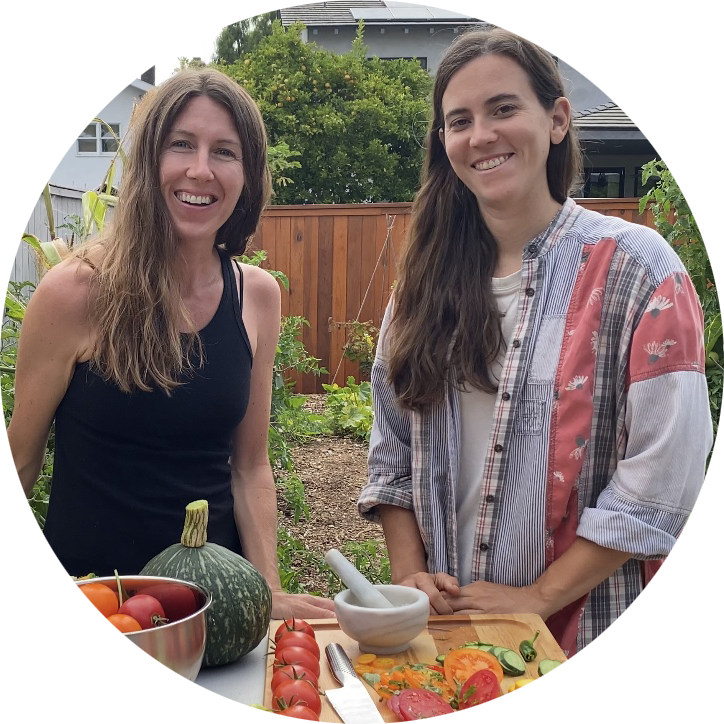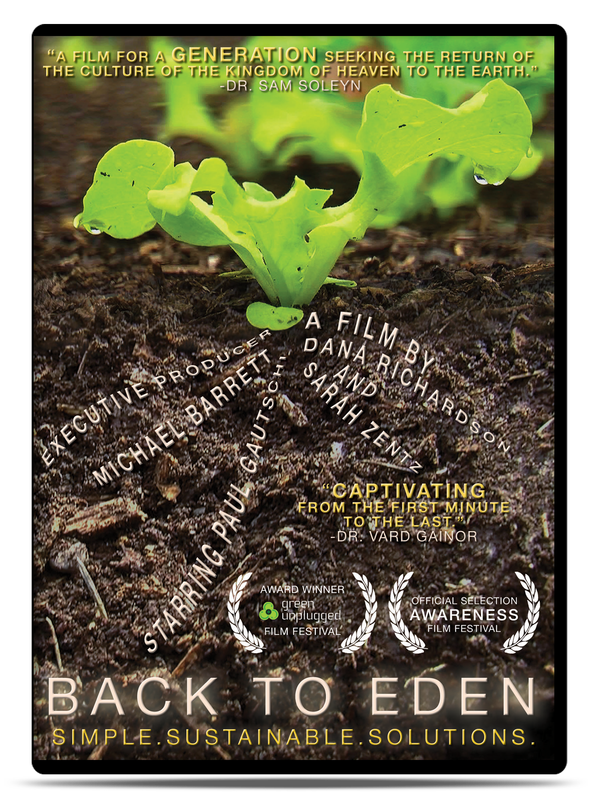 By Erica Parker Several weeks ago I saw a very interesting documentary and it has been on my mind since I saw it. The documentary is titled Back to Eden and it features home gardener Paul Gautschi and others who have discovered the benefits of using wood chips in the garden. I know this might not sound very exciting, but the documentary takes a very holistic and common sense approach to the subject of gardening in tune with nature that makes it worth watching. The main premise of “Back to Eden” is that we should mimic what we see in nature in our gardens. Nature manages to grow the most productive ecosystems in the world with absolutely no input from man (like fertilizer, pesticides, herbicides, irrigation). How? It simply recycles resources. Why shouldn’t we do the same in our gardens (and in agriculture in general)? Wouldn’t the world be a whole lot better off if we started growing food in a way that supported human health, the environment and the human spirit? I think it would. In nature the soil is always covered unless there is some type of disturbance. This cover could be dead grass, leaves, conifer needles, fallen logs, etc. These materials act like the skin of the soil by protecting it from environmental extremes and allowing a whole host of organisms to call the soil home. Believe it or not there’s a lot more than worms in there. These organisms provide valuable services for your plants, like nutrient cycling. So, it’s in our best interest to keep the soil healthy and soil cover is an essential part of this. While there are many options for soil cover (straw, rocks, grass clippings, leaves, etc.), wood chips are a great option because they contain a good balance of carbon to nitrogen to feed soil organisms (depending on how fresh the wood is and how much green leaf material it contains), they stay in place, and they do a good job at suppressing weeds. Also, wood chips help with moisture retention (when dry) and displacement (when very wet). You can also walk on wood chips with less compaction occurring in your soil. And when it comes time for harvest you have clean veggies! Besides chipping your own branches, a good free source of wood chips is your local tree service. Wood chips are a waste product for them and if you’re located on their route you can probably get them to deliver. It’s important to reiterate that wood chips are a soil cover, They should not be heavily mixed into your soil. Your plants’ roots need to grow in soil and will not thrive in wood chips. A layer of wood chips on top of the soil will slowly break down and enrich your soil. Over time you can add wood chips less frequently as you’ve increased the organic matter and improved the structure and biology in your soil. To plant into wood chips use a rake or other tool to expose the soil you want to plant into. Remember, plants grow in soil, not mulch. Wood chips along with compost easily supply all the nutrients your soil needs, so fertilizers are unnecessary. Wood chips also retain moisture in the soil helping your plants grow with even moisture and reducing/eliminating the need to water. Any weed seeds that land on top of the wood chips are less likely to germinate and survive because they are not in contact with the soil. In addition, because wood chips build porous soil it makes weeds easier to pull out. With all this said, any natural soil covering will be beneficial to your garden. So, if you don’t have easy access to wood chips, use what is available to you. Don’t leave your soil naked! I would like to thank Rodale Institute researcher, David Schmeisser, for finding this awesome documentary. Read review here: http://rodaleinstitute.org/2013/asc-intern-journal-late-fall-2013/ |
AUTHORSCategories
All
|
BACK TO EDEN GARDENING |
JOIN THE MOVEMENT |
CONTACT US |
© 2022 Back to Eden Film. All rights reserved.




 RSS Feed
RSS Feed